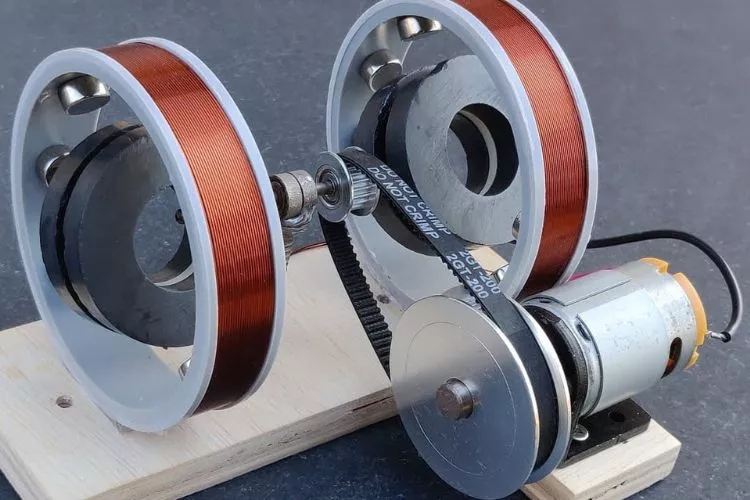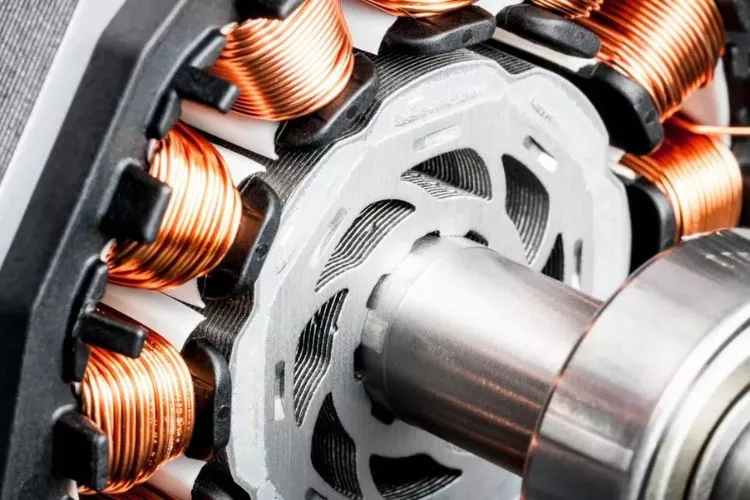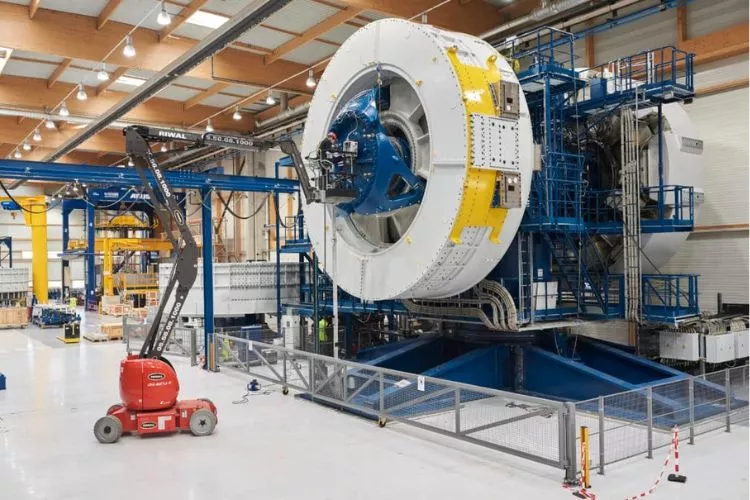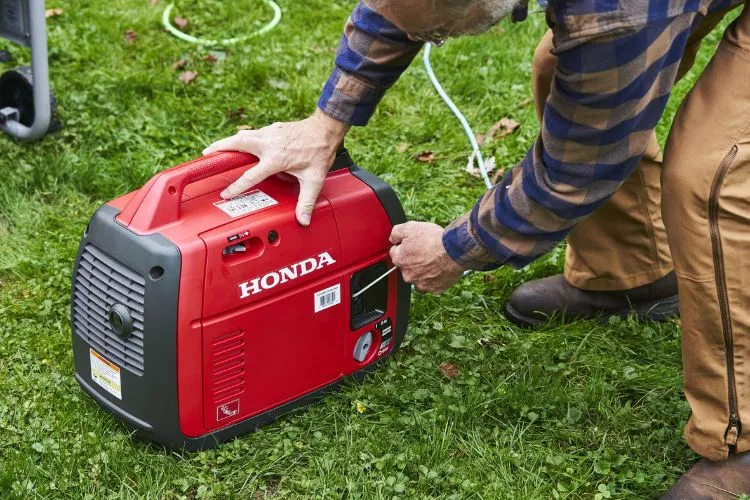As global energy consumption continues to increase, more people are exploring alternative ways of generating power.
One of the most talked-about options in recent years is magnetic generators.
Magnetic generators, also known as perpetual generators, are devices that convert magnetic energy into electrical energy.
They have been gaining popularity as they are touted as an environmentally friendly and cost-efficient way of generating power.
But, can a magnetic generator power a house?
In this article, we will explore the feasibility of using magnetic generators to power homes by examining how they work, their advantages and disadvantages, and how to get started with them.

Can a magnetic generator power a house?
Yes, a magnetic generator has the potential to power a house. It converts magnetic energy into electrical energy, which can be used to power various electrical devices, including homes.
However, the feasibility of using a magnetic generator to power a house depends on factors such as the size and strength of the generator, the energy requirements of the house, and the consistency of the magnetic field.
Additionally, magnetic generators require electrical energy to function, so they cannot power a house without an initial source of electricity.
How Magnetic Generators Work
To understand how magnetic generators work, we need to go back to the basics of magnetism. At their core, magnetic generators rely on the principle of magnets pushing and pulling each other.
They consist of two basic parts: the stator and the rotor. The stator is the stationary part that contains the coils, while the rotor is the rotating part that contains the magnets.

When the rotor rotates, the magnets come closer to and further away from the stator’s coils, creating an electromagnetic field that induces electricity in the coils. The electricity produced can be used to power various electrical devices, including homes.
There are two main types of magnetic generators: permanent magnet generators and electromagnetic generators. Permanent magnet generators use permanent magnets to create a magnetic field, while electromagnetic generators use an electromagnet to create the field.
Permanent magnet generators are simpler to build and maintain, making them a popular choice for DIY enthusiasts.
Pros and Cons of Magnetic Generators for Home Power
Like any other energy source, magnetic generators have their pros and cons. Here are some of their advantages and disadvantages:
Advantages of Using a Magnetic Generator
- Reduced reliance on traditional power sources: Magnetic generators allow homeowners to reduce their dependence on traditional power sources such as coal and gas.
- Potential cost savings: Magnetic generators can provide significant cost savings, particularly in the long run, as they require minimal maintenance and no fuel.
- Environmentally friendly: Magnetic generators are a renewable energy source, making them an eco-friendly option.
Limitations and Challenges of Using a Magnetic Generator
- Initial setup costs: While magnetic generators can be cost-effective in the long run, they require significant upfront investment, which can be a barrier for many homeowners.
- Dependence on magnetic strength and consistency: The efficiency of magnetic generators is heavily dependent on the strength and consistency of the magnetic field. Inconsistent fields can lead to reduced energy production.
- Energy storage and variability issues: Magnetic generators produce a variable amount of energy depending on the strength of the magnetic field. This can result in energy fluctuations that require additional storage solutions.
Case Studies and Examples
While magnetic generators are gaining popularity, many people are still skeptical about their potential to power homes.
However, there are examples of people who have successfully managed to power their homes using these generators.

One such example is a man named Mike Brady, who built his own magnetic generator and has been using it to power his home for more than a year.
He claims to have saved thousands of dollars on electricity bills and enjoys the environmental benefits of using a renewable energy source.
Getting Started with a Magnetic Generator
If you are considering using a magnetic generator to power your home, here are some things you should consider:
Assessing energy requirements: Before investing in a magnetic generator, you need to assess your home’s energy requirements. This will help you determine the size and strength of the generator you need.
Evaluating site suitability: Magnetic generators require a strong and consistent magnetic field to operate efficiently. You need to evaluate your site’s suitability for a magnetic generator and ensure that there are no other electromagnetic sources that could interfere with its operation.
Understanding maintenance and safety considerations: While magnetic generators can be low-maintenance compared to other energy sources, they still require periodic maintenance to ensure that they continue to function optimally.
DIY vs. Professional Installation Options
One of the biggest advantages of magnetic generators is that they can be built or assembled by homeowners.

However, if you are not comfortable building one yourself, you can hire professional installers who can provide guidance and installation services.
Frequently Asked Questions (fAQs)
Can a magnetic generator power a house without electricity?
No, magnetic generators require electricity to function. They convert magnetic energy into electrical energy, which can then be used to power homes.
Is it possible to build a self-running magnetic generator for sale?
No, self-running magnetic generators that can produce more energy than they consume violate the laws of physics and are impossible to build.
Can a magnetic generator be used for large-scale electricity generation?
While magnetic generators have the potential for large-scale electricity generation, they face a number of practical and technical limitations that make them less effective than other options such as wind and solar.
How can I produce electricity from magnets at home?
To produce electricity from magnets at home, you will need to build or purchase a magnetic generator that can convert magnetic energy into electrical energy.
Are there free magnetic energy blueprints available?
There are many free magnetic energy blueprints available online, but most of them are scams that do not work in reality. It is best to do your research and consult reliable sources before investing in a magnetic generator.
Is it possible to achieve free energy using magnets?
No, it is not possible to achieve free energy using magnets. Magnetic generators require energy to function and are not capable of generating more energy than they consume.
The Future of Magnetic Generators and Their Role in Sustainable Energy
As the world shifts toward more sustainable energy sources, magnetic generators have sparked interest due to their potential as a clean, renewable energy option.
However, there are still significant challenges to overcome before they can be considered a mainstream solution for powering homes.
Understanding the future prospects and current limitations of magnetic generators is key to determining their place in the energy landscape.
Technological Advancements
Advancements in material science and magnet technology could potentially improve the efficiency and viability of magnetic generators. Researchers are working on developing stronger and more durable magnets, which could help overcome some of the issues related to magnetic field strength and consistency.
Innovations such as high-temperature superconducting magnets may also play a crucial role in making magnetic generators more powerful and efficient.
Integration with Other Renewable Energy Sources
One of the most promising aspects of magnetic generators is their potential integration with other renewable energy systems, such as solar and wind power. By combining magnetic generators with solar panels or wind turbines, homeowners can create hybrid systems that generate electricity more consistently.
For example, a magnetic generator could serve as a backup power source when solar or wind power is insufficient, ensuring that the home has a constant supply of electricity.
Scaling Up for Wider Use
While current magnetic generators may not be suitable for large-scale commercial energy production, future developments may make it possible to scale up these systems.
In combination with smart grid technology, magnetic generators could potentially play a role in decentralized energy distribution, where homes and small communities generate and consume their own power.
This could reduce the reliance on large, centralized power plants and create more energy-independent communities.
Magnetic generators are still in the early stages of development, but with continued research and collaboration across industries, they may become an important part of the renewable energy mix in the future.
Conclusion:
Magnetic generators have the potential to be an eco-friendly and cost-effective option for powering homes.
However, they come with their own set of challenges that need to be addressed before they can become a mainstream energy source.
If you are considering using a magnetic generator, it is important to do your research and consult reliable sources to determine the feasibility for your home.
